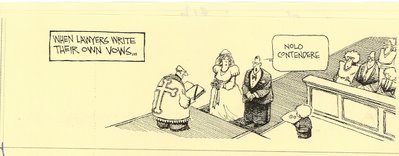Yes, it's true...my Dearly Beloved and I have returned safe and sound from our holiday to New Zealand. Three weeks ago, we set off to the Land of the Long White Cloud, initially spending seven days based at Rotorua - from which we explored the surrounding districts - before driving to Wellington, catching the ferry across Cook Strait, and travelling around the South Island for two weeks. We had an absolutely fantastic time, and I'll be posting details about particular aspects of the trip in the near future. For the nonce, this collection of "best of" bits will hopefully give you an insight into our time away...
Best Beer - Montieth's BlackI discovered this dark beer at the Lone Star Steakhouse in Wellington (see below), and was immediately won over. Lovers of Toohey's Old (and, yes, Yours Truly numbers among them) will immediately warm to the nutty flavour and smokey undertaste. A positive joy to drink ice-cold while relaxing in the shade on a peaceful summer's afternoon, with either a good book or the day's papers in easy reach.
Best Accommodation - Shades of ArrowtownThis delightful sanctuary is literally a stone's throw from the centre of historic Arrowtown, and consists of a series of cosy units set around a central lawn shaded by leafy old trees. A hedge screens the property from the outside world - not that you'd
actually want to hide from the beautiful alpine scenery by which you're surrounded - and the general atmosphere is one of genteel colonial charm that doesn't lapse into hokiness or kitch. A true place of rest for the weary traveller.
Best New Location - Wellington and NelsonA dead-heat between these two cities. Wellington, the capital of New Zealand, is located on the southern coast of the North Island. Nelson is situated on the north-west coast of the South Island. The heart of each city resides in a central business district that preserves the colonial architectural heritage without descending into pretentiousness or tourist-oriented cliche. Wellington features a number of splendidly preserved/restored buildings and churches, while Nelson is graced by a breath-taking cathedral, snug pubs, and agreeable eateries. Both are also picturesque cities, nestled between mountains and the sea.
Best Old Location - ArrowtownAs far as I was concerned, this was like meeting an old friend again after an absence of many years. I fell in love with Arrowtown the last time I was in New Zealand, largely because its location amid the magnificent Southern Alps and gentle charm reminded me of the Christmas trips to Bright (in the alpine region of Victoria) my family used to undertake when I was a child. I was delighted to discover that, unlike Bright, not much had changed. It is still a splendidly preserved mining town situated in a peaceful valley overshadowed by looming peaks. Of course, the place does cater for the tourist trade; but it has managed to retain its character and charm, and avoid become a cheerless tourist trap.
Best Restaurant - a) The Crazy Horse Steakhouse; b) The StablesThe Crazy Horse Steakhouse in Wellington (don't be fooled by the name: it's not a dodgy entertainment complex frequented by dishevelled men wearing long rain coats) is an elegant but relaxed restaurant located in the heart of Wellington's picturesque CBD. It's menu features superb cuts of prime steak nicely presented, a terrific wine list, and an even better beer menu, from which I discovered the dark liquid gold that is Monteith's Black. The Stables in Arrowtown is set within the grounds of a wonderfully well-preserved historic building, with a menu tending toward Mediterranean cuisine. Once again, the wine list is first class, and the desserts are the perfect compliment to a fantastic meal. Both are pricey, but well worth the capital outlay.
Most Interesting Restaurant - The Skyline Restaurant, RotoruaAs the name suggest, this eatery is located at the summit of one of the many precipitous hills overlooking Rotorua, reached by a scenic gondola ride. The menu comprises a four-course buffet, starting with soups, and running through seafood and main courses, before ending with dessert and coffee. The meal is complimented by comfortable surrounds, efficient staff, and spectacular views of Rotorua and surrounding districts. And don't be worried by the buffet format: this
isn't one of those all-you-can-eat "family-style" joints where parents think they are abrogated from any responsibility for ensuring their children conduct themselves in a reasonably civilised manner; quite the opposite, in fact.
Best Cheap Eats - a) The Turkish Delight; b) Arrow Thai FoodsThe Turkish Delight in Nelson is a simple, yet elegant, restaurant that serves real food in appropriately generous portions. The cuisine is unpretentious yet flavoursome, the menu expansive and inviting. You don't walk away from this establishment feeling in the least bit hungry, and the coffee is first rate. As you approach Arrow Thai Foods, located on the scenic banks of the banks of the Arrow River in Arrowtown, you are greeted by the delicious aroma of mixed spices redolent with the textures of all the different ingredients utilised in Thai cooking. And the treats to be had more than justify the olfactory promise. Add a solid wine list and the joys of eating outdoors in such a splendid locale, and you have a great dining experience at a cheap-as-chips price.
Best Pub - The Victorian RoseWithout a doubt, this hostelry in Nelson wins by a country mile. A "British" pub without the phony atmospherics or pretentious allusions to quaintness, the Victorian Rose combines nicely though unobtrusively preserved colonial architecture with a laid back mood, a great beer list, and basic but hearty pub food. The ideal environment in which to wet the whistle before heading off to dinner, or spend an idle hour or two lingering over a good brew and a book.
Best Natural Phenomenon (North Island) - The Waitapo Thermal PoolsThis truly astonishing series of thermal pools just south of Rotorua makes you realise just how active the earth is, and just how contingent on the volcanic whims of our planet is the continuance of human life. From the multi-coloured thermal water pools with their billowing clouds of sulfurous steam and artist's palette of chemically induced colours, to the glooping mud holes with their acrid stench, this astonishing landscape has to be seen to be believed.
Best Natural Phenomenon (South Island) - Doubtful SoundThe Doubtful Sound cruise makes for a long but rewarding day. It starts with a pleasant cruise across Lake Manapouri, followed by a bus journey across the mountains (and remember, this is Fiordland, deep in the heart of the Southern Alps) replete with panoramic views, and ends with the cruise itself. The deep (and apparent) calm of the water in the Sound, the mountains that drop sheer into the fiord, the pristine silence of the wilderness, and the sheer
isolation simply have to be experienced to be understood. Add sightings of dolphins and seals, and you have an excursion into one of the few areas left in the world that have remained relatively unspoiled by human contact. And best of all, you don't have to put up with the hordes of tourists to be found at other, better known, locations such as Milford Sound.
Best Wine - Marlborough Savignon Blanc, 2004-2006 vintageAny wine from the Marlborough region on the South Island is bound to be pretty good, however, we consistently kept encountering sav blancs of this vintage that were truly outstanding. The crispness of the wine was always underscored by a subtle taste of fruit, and both combined to produce a nicely balanced drop that was worth drinking regardless of the meal. Neither too acidic nor too mellow, this wine managed to be both refreshing and flavoursome, and added up to a great drinking experience.
Best Scenic Drive - Pickton to Westport, via Nelson.This picturesque but challenging road took you along the spectacular northern coastland of the South Island, before plunging inland across the northernmost reaches of the Southern Alps until you emerged at the north-western coastline for an overnight stay in lovely Nelson. Next day you head inland again, striking once more up and into the mountains, across upland plateau, before descending down to Westport by the spectacular Buller Valley. Along the whole course of the journey, precipitous peaks loom overhead, by different turns reminding one of the Australian Alps, the Scottish Highlands, or even (in my Dearly Beloved's case) the mountains of the upper Yangtze River. The road is frequently narrow and rarely straight, the weather (like all mountain weather) eminently changeable, and the result is unforgettable.
Favourite NZ Curiosity - Chips 'n' ChineseIn both the North and South Islands, my Dearly Beloved and I were repeatedly struck by the frequency with which we encountered fast food stores that provided both Chinese food
and fish 'n' chips. Everywhere we went, store signs would proclaim: FISH N CHIPS. HAMBURGERS. CHINESE MEALS.
Huh? In Australia, you either go to the Chinese take-away, or you head to the fish 'n' chip shop. But apparently not in New Zealand. We started wondering what this could mean. Stir-fried chips? Sweet and sour potato cakes? Szechuan flake with black bean sauce? We also wondered what it must
smell like in one of these establishments, the aroma of Chinese cooking competing with the scent of fried batter; but in the end, we decided it was best to just pass on by and allow this mystery to remain unexplored.
Best Walking City - ChristchurchWithout a doubt, Christchurch takes the prize. Nelson and Wellington were close, but Christchurch won without the need for too much reflection. The sheer density of well-preserved historic buildings and churches, combined with multitudes of green, shady spaces and pleasant malls, made Christchurch ideal for a day's idle wandering and pleasant exploring. There was much to see and of which to take note, and it was all nicely snug and compact, meaning you didn't have to go out of your way, or board some ruinously expensive transfer coach for a dull trip to some distant locale. Everything was more or less there in the centre of town, and the centre of town was pretty close to everything else.
Well, that's it for now. As I said, only a taste of some of the more detailed posts to come. For the moment, I need to get my backpack unpacked, my clothes washed, and my bills paid. Also need to get my body-clock back in sync (funny how ten hours doesn't seem to affect me much, but two hours knocks me right out of kilter!).
Talk to you soon,
BB
Quote for the Day:
Travel, in the younger sort, is a part of education; in the elder, a part of experience. (Francis Bacon)




































